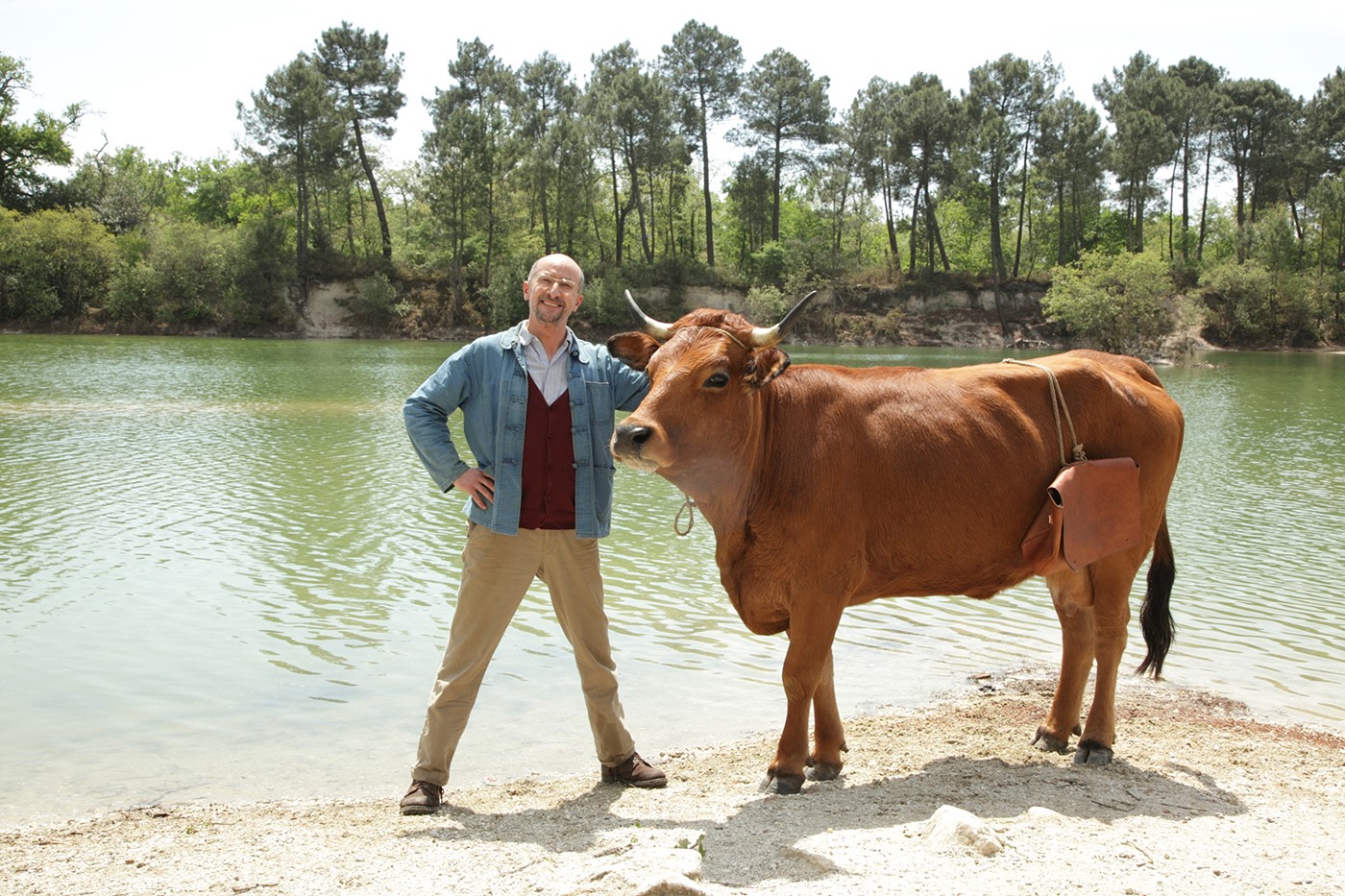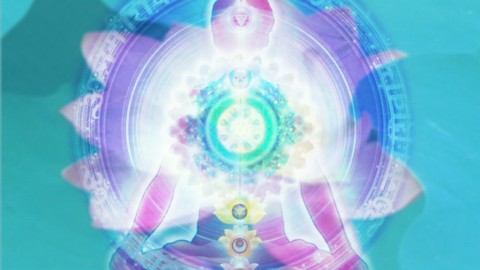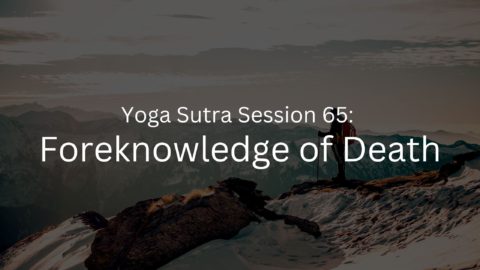Before we enter Yoga Sutra 39, let us understand what Kaivalya is.
One of the most important sutras of Patanjali – the very key. This last part of Patanjali’s YOGA SUTRAS is called “kaivalya pada.” Kaivalya means the summum bonum – the ultimate liberation, the total freedom of consciousness, which knows no limitation, which knows no impurity. The word kaivalya is very beautiful; it means innocent aloneness; it means pure aloneness.
The word “aloneness” has to be understood. It is not loneliness. Loneliness is negative: loneliness is when you are hankering for the other. Loneliness is the feeling of the absence of the other; aloneness is the realization of oneself. Loneliness is ugly; aloneness is tremendously beautiful.
Aloneness is when you are so content that you don’t need the other, that the other has completely disappeared from your consciousness – the other makes no shadow on you, the other creates no dream in you, the other does not pull you out.
The other is continuously pulling you off the center. Sartre’s famous saying, Patanjali would have understood it well, is, “The other is hell.” The other may not be hell, but the hell is created by your desire for the other. The desire for the other is hell.
And to be desireless of the other is to attain to your pristine clarity of being. Then you are, and you are the whole – and there exists nobody except you. This Patanjali calls; Kaivalya.
And the way towards kaivalya, the path, is first, the most essential step, viveka, discrimination; the second important step is vairagya, Renunciation; and the third is the realization of kaivalya, aloneness.
Why are you hankering so much for the other? Why this desire – this constant madness for the other? Where have you taken a wrong step? Why are you not satisfied with yourself? Why don’t you feel fulfilled? Why do you think that somehow you lack something? From where arises this misconception that you are incomplete? It arises out of the identity with the body. The body is the other. Once you have taken the first wrong step, then you will go on and on, and then there is no end to it.
By viveka Patanjali means: to discriminate yourself as separate from the body – to realize that you are in the body but you are not the body, to realize that you are in the mind but you are not the mind.
To realize that you are always the pure witness – sakshi, drashta – the seer. You are – never the seen; you are never the object. You are pure subjectivity.
Soren Kierkegaard, one of the most influential existential thinkers in the West, has said, “God is subjectivity.” He comes very close to Patanjali. What does he mean when he says God is subjectivity? When all objects are known as separate from you, they start disappearing. They exist through your cooperation. If you think you are the body, then the body continues. It needs your help, your energy. If you think you are the mind, the mind functions. It needs your help, your cooperation, your energy.
This is one of the inner mechanisms: that just by your presence nature becomes alive. Just by your presence the body functions as alive; just by your presence the mind starts functioning.
In yoga they say it is as if the master had gone out; then he comes back home. The servants were chit chatting and sitting on the steps of the house and smoking, and nobody was worried about the house. The moment the master enters, their chit chat stops, they are no longer smoking, they have hidden their cigarettes and they have started working, and they are trying to show that they are so much involved in their work that you cannot even conceive that just a moment before they were gossiping, sitting on the steps idling, lazy, resting. Just the presence of the master, and everything settles – as if the teacher had gone out of the class and there was much turmoil, almost a chaos, and the teacher comes back and all the children are in their seats and they have started writing, doing their work, and there is complete silence. The very presence.
Now scientists have something parallel to it. They call it the presence of the catalytic agent. There are a few scientific phenomena in which a certain substance is needed just to be present. It does not act in any way, it does not enter into any activity, but just the presence of it helps some activity to happen – if it is not present that activity will not happen. If it is present it remains in itself; it does not go out. Just the very presence is catalytic – it creates some activity in somebody else, somewhere else.
Patanjali says that your innermost being is not active; it is inactive. The innermost being is called in yoga the purusha. Your pure consciousness is a catalytic agent. It is just there doing nothing – seeing everything, but doing nothing; watching everything, but getting involved in nothing. By the sheer presence of the purusha; the prakriti, nature – the mind, the body, everything – starts functioning.
But we get identified with the body, we get identified with the mind: we slip out of the witnesser and become a doer. That’s the whole disease of man. Viveka is the medicine – how to go back home, how to drop this false idea that you are a doer, and how to attain the clarity of just being a witness.
The methodology is called viveka.
Once you have understood that you are not the doer and you are the watcher, the second thing happens spontaneously – renunciation, sannyas, vairagya. The second is: now whatsoever you were doing before, you cannot do. You were getting involved too much in many things because you were thinking you are the body, because you were thinking you are the mind. Now you know that you are neither the body nor the mind, so many activities that you were following and chasing and getting mad about simply drop. That dropping is vairagya; that is sannyas, renunciation.
Your vision, your viveka, your understanding, brings a transformation: that is vairagya. And when vairagya is complete another peak arises, which is kaivalya – you for the first time know who you are. But the first step of identification leads you astray; then once you have taken the first step, once you have ignored your separation and you have got caught in the identity, then it goes on and on and on; and one step leads to another, then to another, and you are more and more in the mire and in the mess.
Let me tell you one anecdote:
Two young friends were breaking into society and young Cohen had high hopes of marrying an heiress. To give him moral support he took young Levy along with him to meet the girl’s parents.
The parents smiled at young Cohen and said, “I understand you are in the clothing business.” Cohen nodded nervously and said, “Yes, in a small way.”
Levy slapped him on the back and said, “He is so modest, so modest. He has twenty-seven shops and is negotiating for more.”
The parents said, “I understand you have an apartment.” Cohen smiled, “Yes, a modest couple of rooms.”
Young Levy started laughing, “Modesty, modesty! He has a penthouse in Park Lane.”
The parents continued, “And you have a car?”
“Yes,” said Cohen. “Quite a nice one.”
“Quite nice, nothing!” interjected Levy. “He has three Rolls-Royces, and that is only for town use.”
Cohen sneezed. “Do you have a cold?” asked the anxious parents. “Yes, just a slight one,” replied Cohen.
“Slight, nothing!” yelled Levy. “Tuberculosis!”
One step leads to another, and once you have taken a wrong step, your life becomes an exaggeration of that wrong. It is mirrored and reflected in millions of ways. And if you don’t correct it there – you can go on correcting all over the world – you will not be able to correct it.
Gurdjieff used to tell his disciples, “The first thing is to become non identified and to remember continuously that you are a witness, just a consciousness – neither an act nor a thought.”
If this remembrance becomes a crystallized phenomenon in you, you have attained to viveka, discrimination; then spontaneously follows vairagya. If you don’t become discriminate; spontaneously follow samsar, the world. If you become identified with the body and the mind, you move out – you go into the world. You are expelled from the garden of Eden. If you discriminate and you remember that you are in the body and the body is an abode and you are the owner and the mind is just a biocomputer, you are the master and the mind is just a slave; then, a turning in.
Then you are not moving into the world, because the first step has been removed. Now you are no longer bridged with the world, suddenly you start falling in. This is what vairagya is, renunciation.
And when you go on falling in and in and in and there comes the last point beyond which there is no go, the summum bonum, it is called kaivalya: you have become alone. You don’t need anybody. You don’t need the constant effort of filling yourself with something or other. Now you are in tune with your emptiness, and because of your tuning in with the emptiness, the very emptiness has become a fullness, an infinity, a fulfillment, a fruition of being.
This purusha is there in the beginning, this PURUSHA is there in the end, and between the two is just a big dream.
Tags: Innocent Aloneness Patanjali










